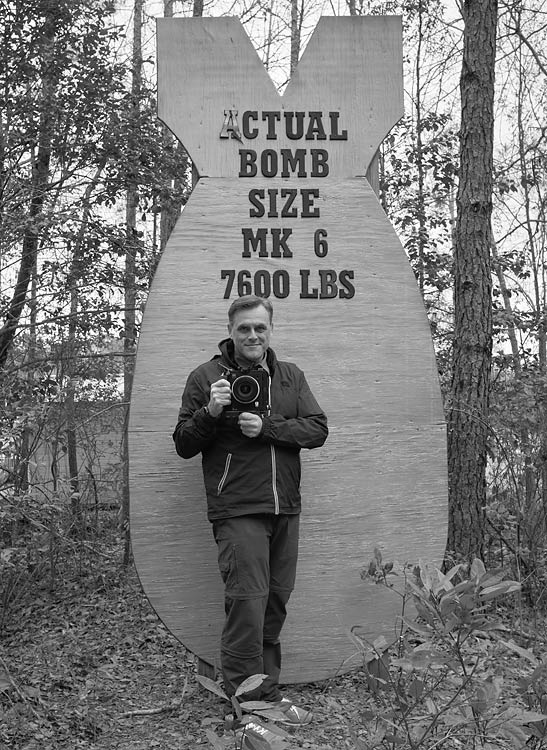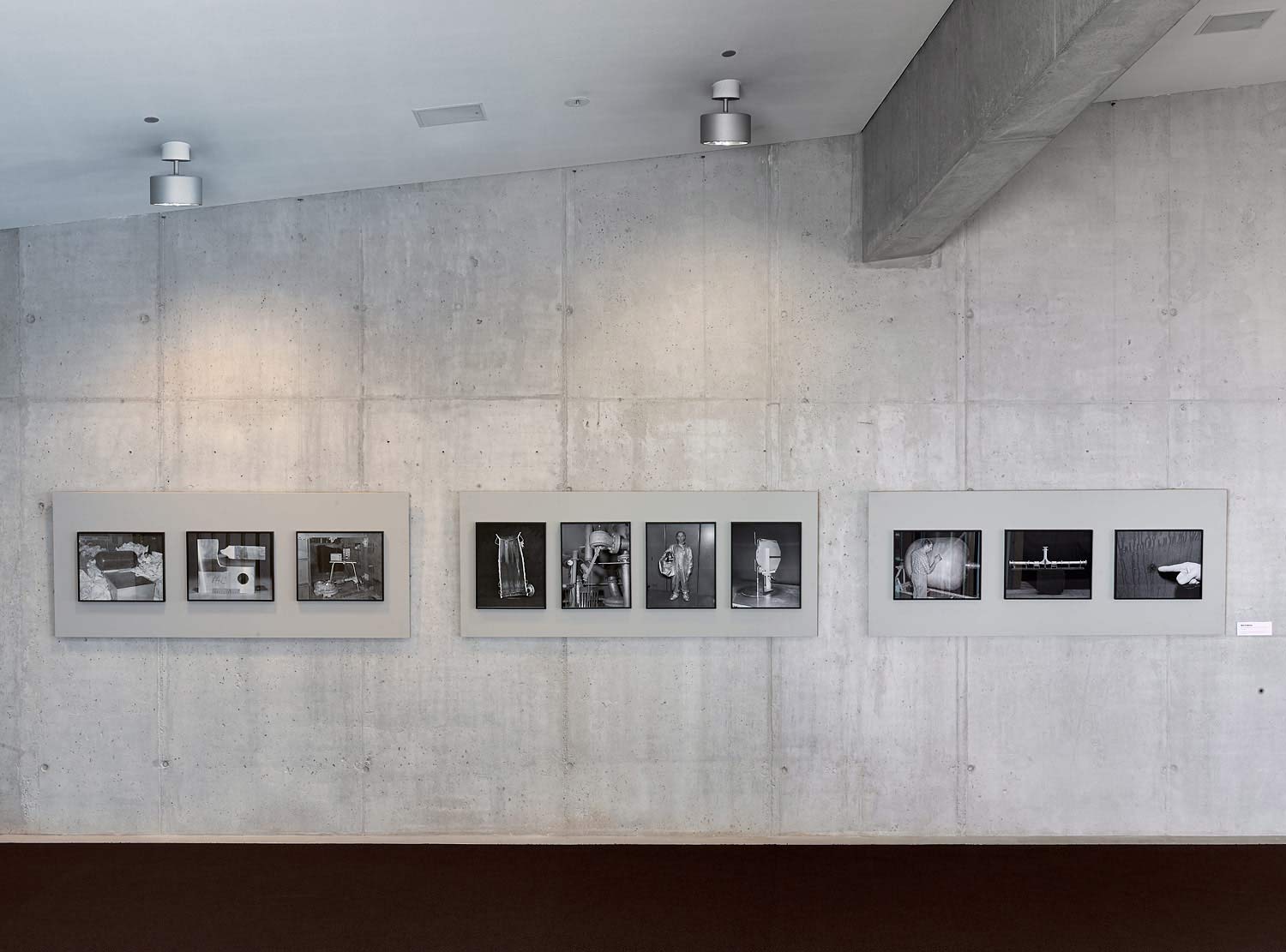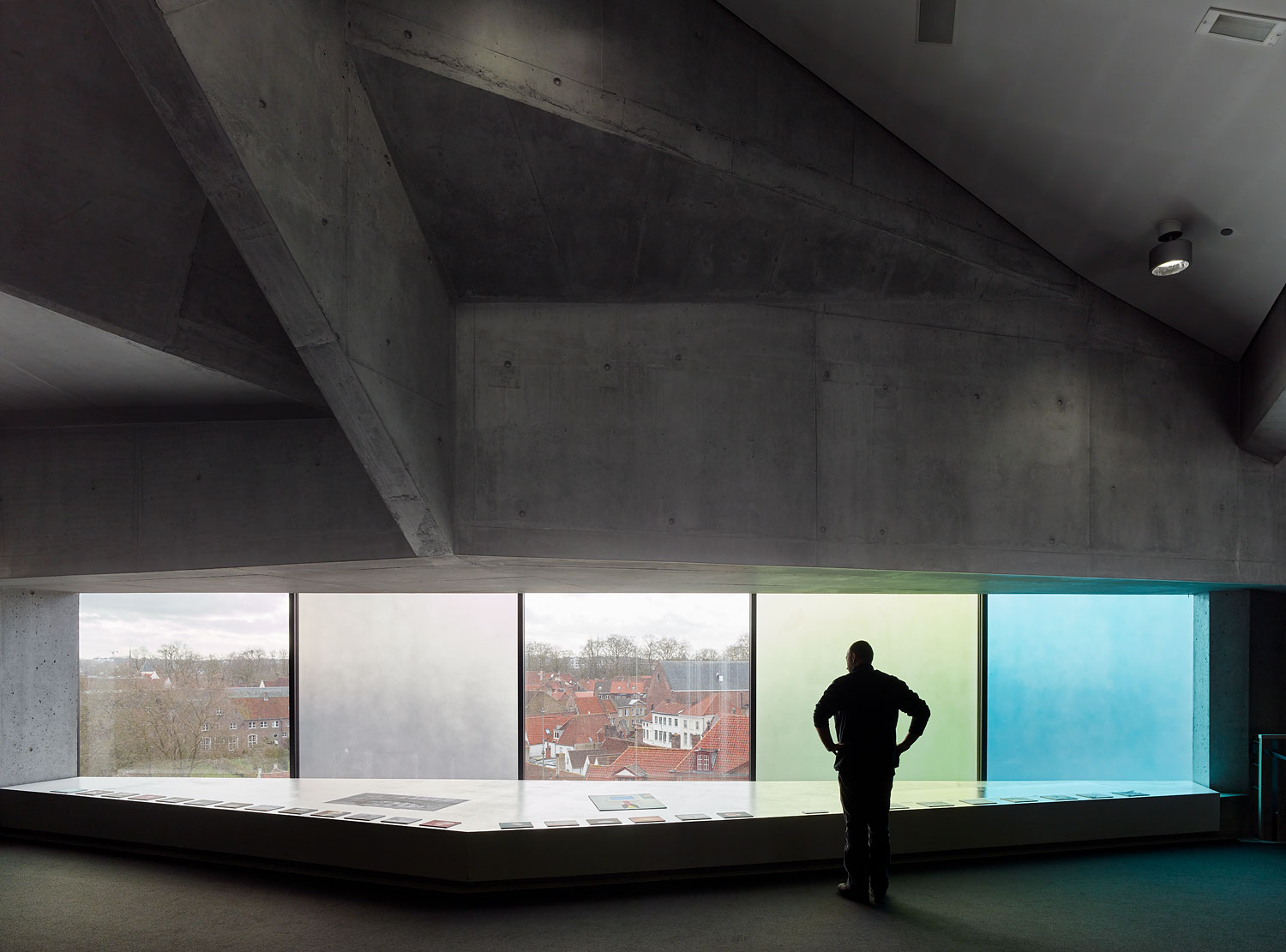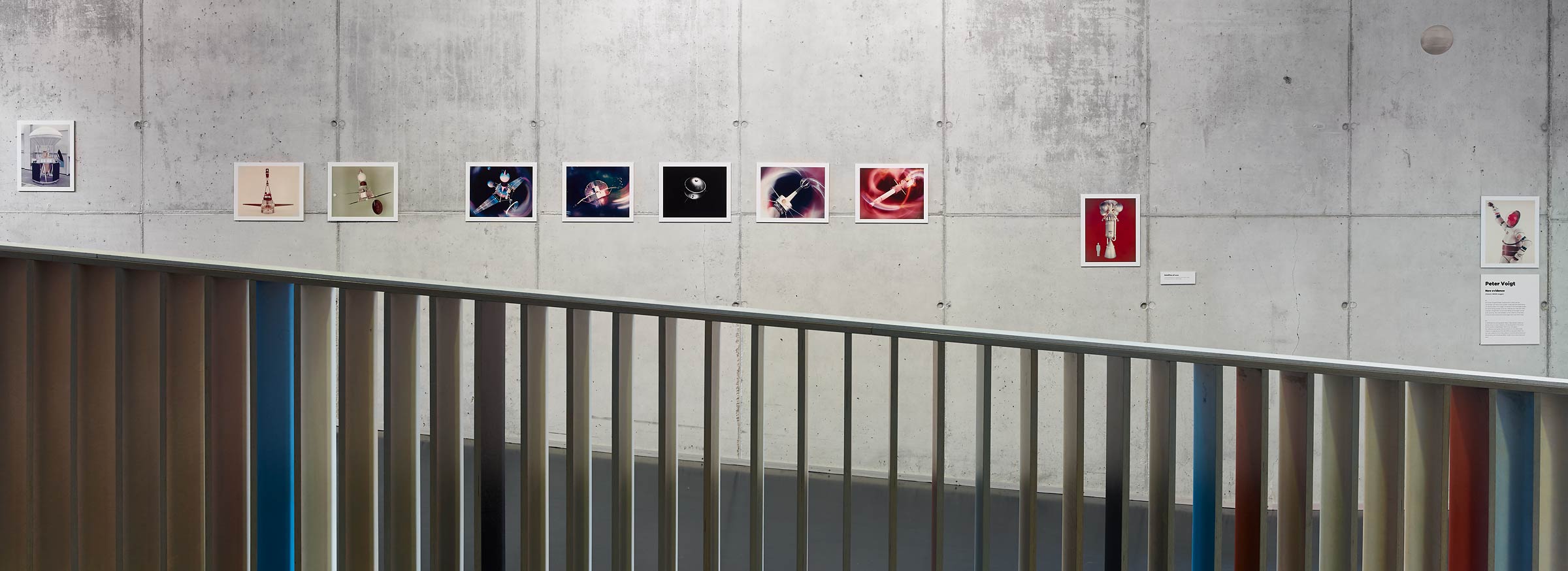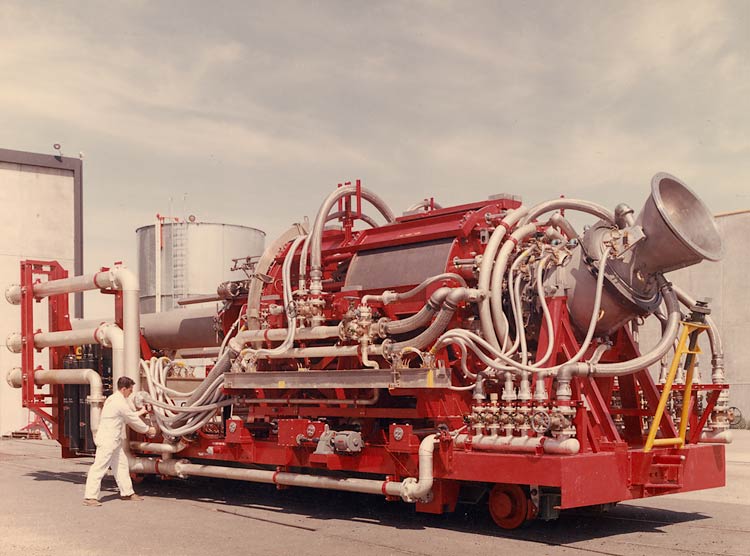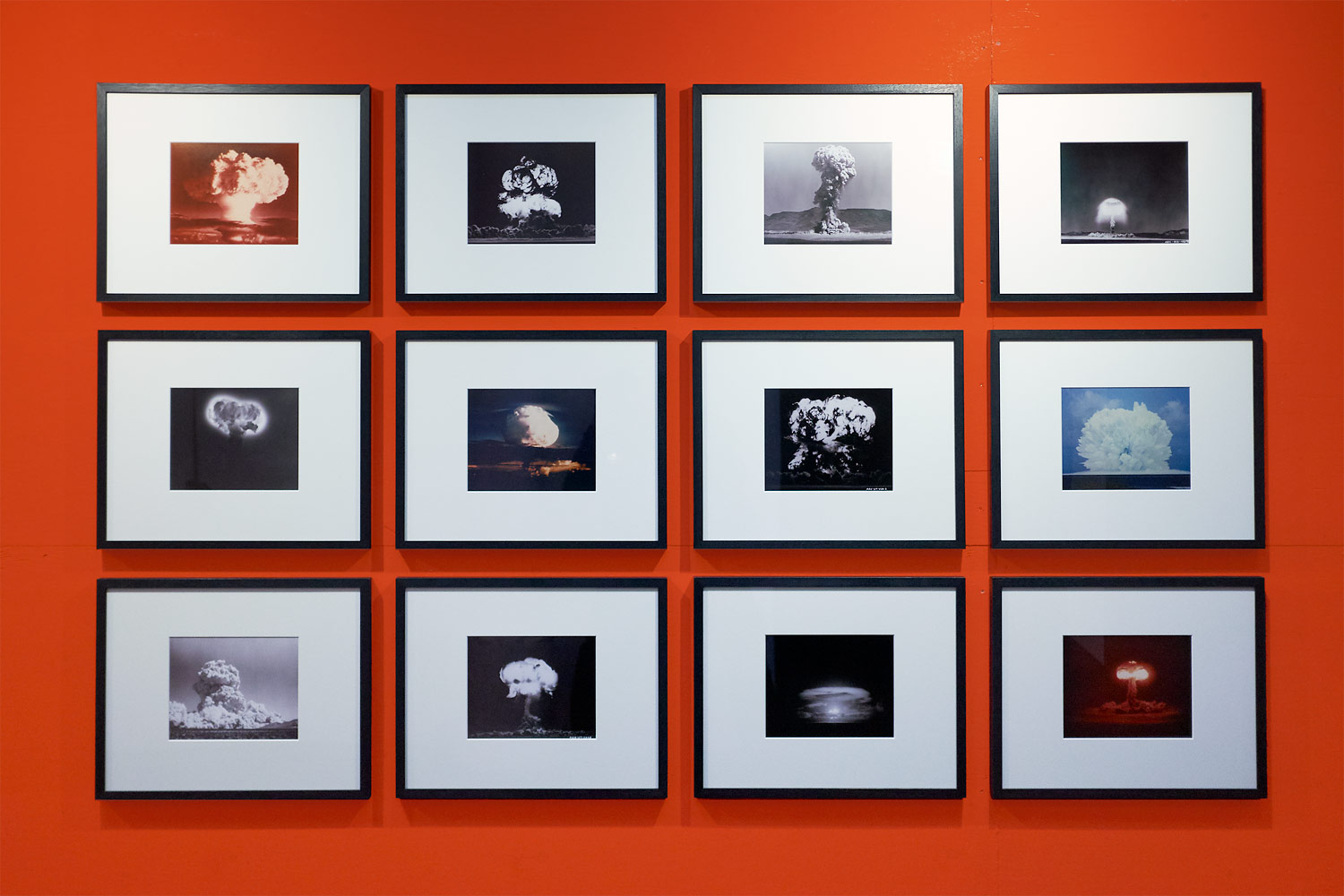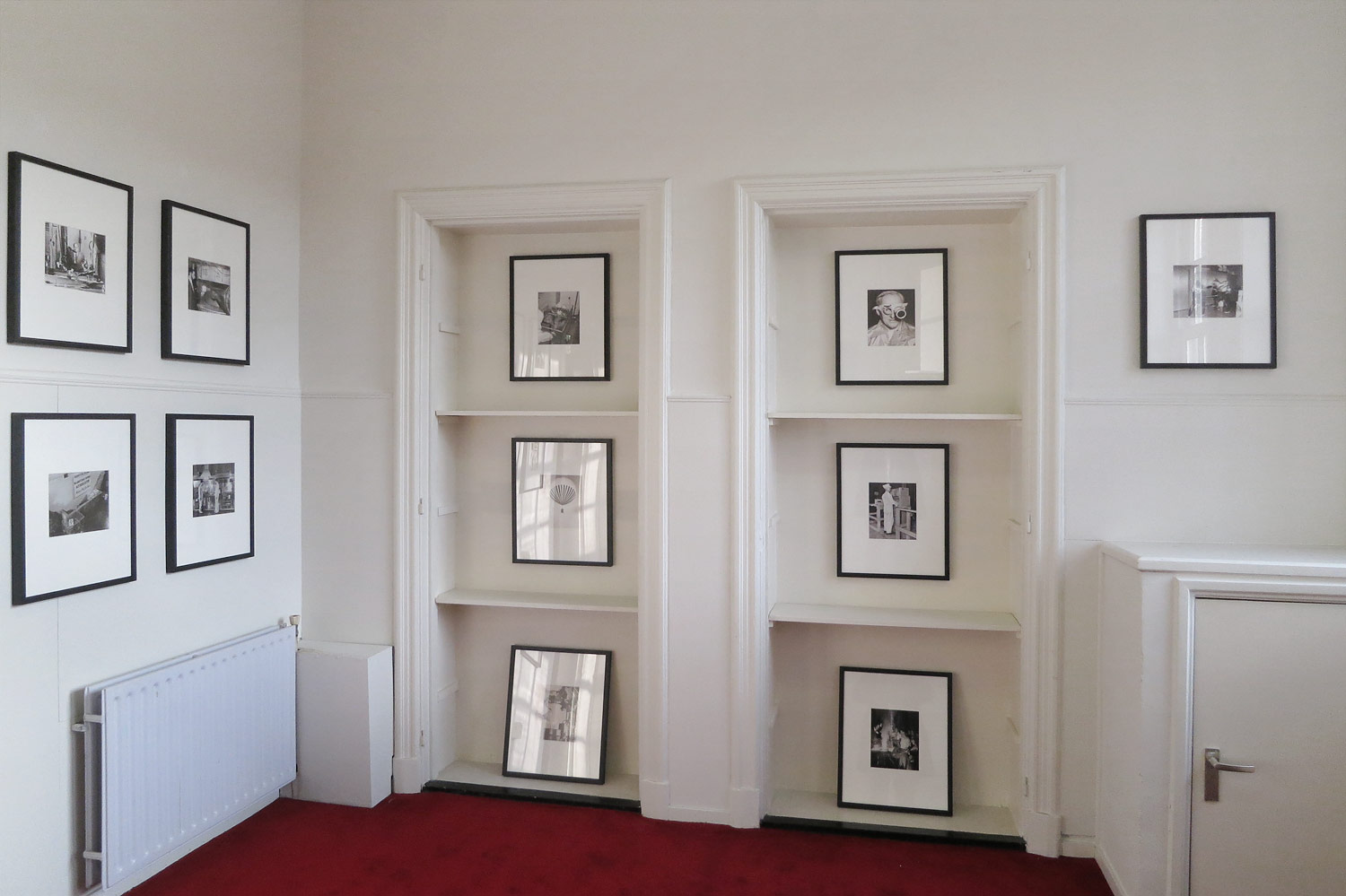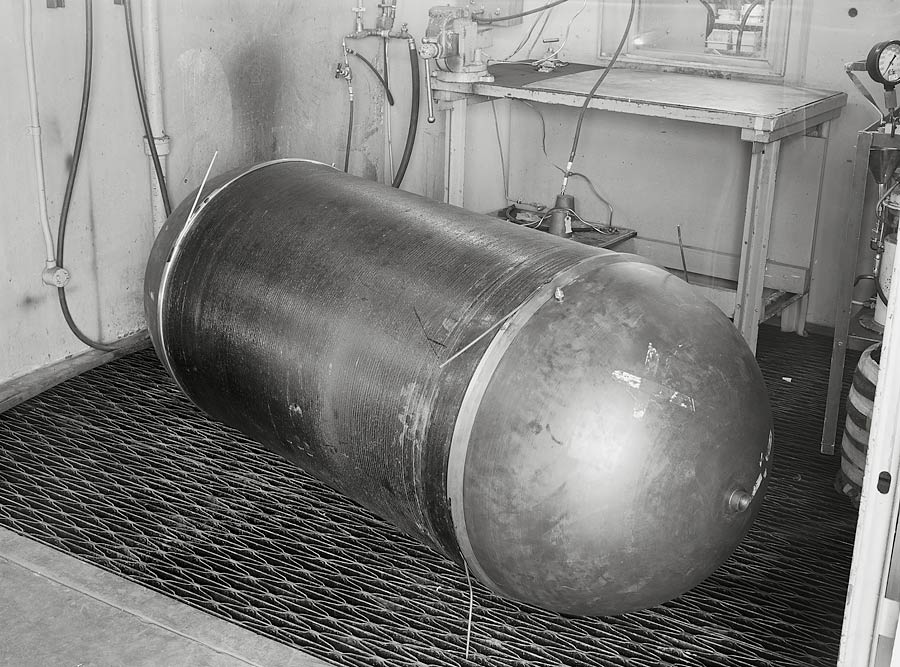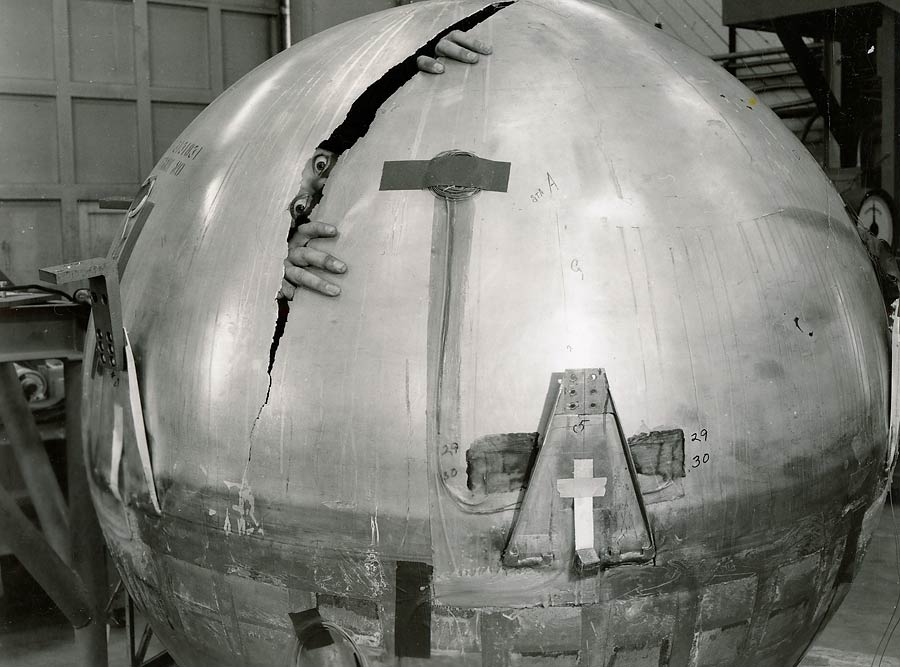The collection is curated according to artistic criteria. I am inspired by artists like Peter Piller or Larry Sultan and Mike Mandel. I think in exhibition installations and book layouts. Over time, I have built up a cluster of thematic series. One is called “Rocket Men” a group of almost erotic photos of military men touching missile models, another group shows civil defense workers pointing at maps.
Ironic humour comes almost naturally to these pictures. Others are rather dark. They all portray a dusty retro science fiction world in which men in suits are involved in obscure operations. It sure looks funny, but we should be careful. In the future, our own current scientific explorations and social conditions might also well be considered as a curiosity.



